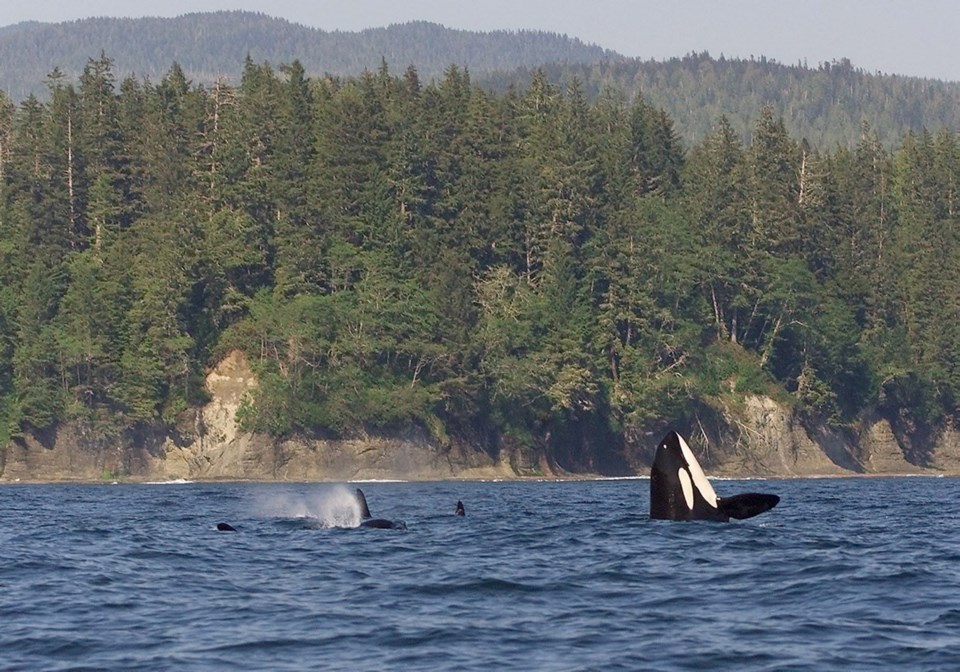The West Coast Trail Express is used to tough slogging over dirt roads and bumpy terrain, but this year the transportation company, which ferries more than 6,000 hikers out to the West Coast Trail annually, has had more ups and downs than it can handle.
With the West Coast Trail closed for 2020 and tourism numbers slashed due to the pandemic, the 30 year-old firm has resigned itself to writing off the season and hoping 2021 will bring back a semblance of normalcy.
“It’s been extremely challenging,” said owner Michael Alexander.
“We had our best year ever booked [for this year] … then we realized our bookings had stopped and I’ve been refunding ever since. Things were looking very good, then they changed very quickly.”
Alexander said early this year they had a strong start with charters to the west coast’s Marine Science Centre in Bamfield and a season full of bookings.
Those charters and deposits for the summer allowed him to sink a lot of money into getting his six vehicles, which take a pounding every year on difficult roads, ready for the season.
Since then, Parks Canada has closed the West Coast Trail, while the Juan de Fuca Trail only opened in early June.
Alexander has had to use his life savings and a new mortgage on his home to provide refunds to clients around the world.
“We haven’t had any money since [shutting down] last September and we now don’t expect to have any income until January of next year,” he said, noting Parks Canada opens the reservation system for the West Coast Trail in the first week of the year each year. “It’s always my busiest day of the year. We’ll see what happens this time.”
There are no guarantees that the trail, which represents 90 per cent of the company’s revenue, will open next year.
Alexander said he understands the need to close the trail given there are three First Nations along the rugged path, who need to protect themselves. He’s even glad to see the trail will have a year free of hikers, which may allow it to rejuvenate and for Parks Canada to make some repairs and adjustments.
But it doesn’t make for an easy year, and means five people will not have summer jobs.
“I’m going to be able to weather this year,” he said, noting it could mean putting the company into debt for another 10 years. The company is still running one vehicle to ferry hikers out to the Juan de Fuca Trail in Port Renfrew, but most hikers are finding other ways of getting out there on their own. Often during a day, Alexander will take a few people out, but will have no one to bring back.
Alexander said he feels he needs to keep up the service, though he only intends to run until Labour Day instead of the end of September, as usual.
“It was great until June 1 [when the Juan de Fuca Trail reopened], when I wasn’t making any money, but now I’m losing money,” he said with a laugh. “We’re now just looking forward to next year.”
Alexander said because his debt levels are fairly low he’s in better shape than some transportation companies.
The B.C. Trucking Association has said the pandemic will kill most of B.C.’s motor-coach companies if the provincial government does not come to the table with an aid package.
The association has asked for support on flexible insurance options, more access to loans and the extension of some existing government aid programs.
It is estimated that 95 per cent of North America’s motor coaches are currently off the road.
Alexander holds out hope of relief offered by either the federal or provincial governments, especially as his company is the only one with service to Port Renfrew and Bamfield.
But he is clear that unless the West Coast Trail opens next year, the chances that his company will survive are pretty slim.
“It would depend on how far the bank would allow me to go into debt before they take it away,” he said, noting he might be able to make a go of it based solely on having hikers from B.C. and the rest of Canada, assuming international borders are not yet open next year.



